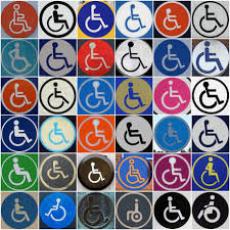Review of residential care services for disabled people released
Thu 12 Dec 2013
A review of disability support services has recommended changes into residential care services for disabled people, following concerns that were ...

A review of disability support services has recommended changes into residential care services for disabled people, following concerns that were raised in 2013.
Putting People First: A Review of Disability Support Services Performance and Quality Management Processes for Purchased Provider Services was carried out by a panel. They were asked to test if the current processes involved in evaluating, monitoring and managing complaints support provider improvement and the safety and well-being of people with disabilities. Specifically, the panel was asked to evaluate:
i. the clarity of the Ministry’s communications to providers on service delivery expectations
ii. the effectiveness of the Ministry’s processes to promptly identify and manage safety issues
iii. the efficiency of the Ministry’s processes in responding to the performance of contracted providers, including the ability to hold providers to account
iv. the effectiveness of the reporting mechanisms and monitoring processes in place.
The report finds that improvements in the future can be achieved by:
- Supporting providers to offer high quality care and supports that place disabled people at the centre of their service
The report states "The Ministry has a key role in achieving this, in setting direction, in clearly communicating what high standards of performance and outcomes look like – and in promoting and supporting this."
- Giving disabled people a voice – the ability to speak out when unsafe, including the support to do this if they are unable to do so on their own
The report states "Many disabled people have learnt to be silent about abuse through fear of retribution, losing services they depend on, or perceiving they deserve to be abused. As a result, many have become invisible."
- Ensuring the processes that capture complaints, incidents, and issues, do so in a way that: (i) keeps disabled people safe, and (ii) resolves the complaint or issue
The report states "A number of factors have a systemic impact on how safe disabled people are to speak up, the key one being knowing they are safe. This sense of safety arises from: (i) knowing they will be listened to, (ii) knowing complaints will be acted on and resolved, and (iii) knowing action will be taken to remove the perpetrators of the abuse from situations where they can continue to harm others."
- Improving the effectiveness of performance management systems, so no providers – and no disabled people – fall below the radar.
Health Minister Tony Ryall said the Government had accepted all 36 recommendations in the review.
Media:
Disability services independent review released, The Beehive: Tony Ryall, 12.12.13
Government to enforce disability support recommendations, Radio NZ, 12.12.13
Independent panel seeks major changes in disability care, Radio NZ, 12.12.13
Related media:
Damning audit into Christchurch disability facility, Radio NZ (Nine to Noon), 06.12.13
Recent New Zealand research:
Resources:
Domestic violence and disabled people [booklet]. (2011). Auckland Domestic Violence and Disability Group] (also available in NZ Sign Language via the link)
Other resources are collated in an earlier NZFVC news story (June 2013).
Image: Wheelchair Access by Leo Reynolds. Licence: Attribution-NonCommercial-ShareAlike 2.0 Generic (CC BY-NC-SA 2.0)
Image: Leo Reynolds


